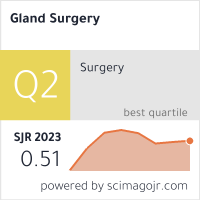LEVERAGING BIG DATA ANALYTICS TO IMPROVE HEALTHCARE QUALITY: A NEW APPROACH TO PATIENT-CENTERED CARE
Keywords:
Big Data Analytics, Healthcare Quality, Patient-Centered CareAbstract
In recent years A paradigm shift has occurred in the healthcare industry, with a shift away from the provider-centric model and toward a system that puts patients' needs, preferences, and values first. The aim of this study is to present a thorough analysis of the situation of big data analytics in healthcare today, emphasizing its potential and describing the actions required to achieve its revolutionary impact. Methodology: design, a comparative observational study was utilized. The study compared nursing performance, patient outcomes, and operational efficiency in hospitals that implemented big data-driven systems versus hospitals using traditional management approaches. Setting: The study include hospitals, clinics, and healthcare settings across different regions in Saudi Arabia, that use big data tools in varying capacities. The sample was selected from the following categories: Hospitals Selected: 10 hospitals (5 with big data analytics, 5 without). Sample: The study included a purposeful sample of 600healthcare provider, and 1000 adult patients Tools: I. Demographic characteristics for participants include: a-Demographic characteristics of participating health care (e.g. Age, gender, level of education, work sitting) b-Demographic characteristics of participating patients (e.g. Age, gender, health condition), II: Patient Outcomes sheet. III Nursing Quality Metrics questioner. IV Patient satisfaction survey. Results: there is a highly significant statistical differences between both groups regarding to patients outcome, and Nursing Quality Metrics. Regarding to patient satisfaction, Patients in Group A (Big data) expressed higher satisfaction than those in Group B (traditional). Related to job satisfaction for healthcare, Group A (Big Data) reports a higher level of job satisfaction than Group B (traditional). Conclusion: This study provides compelling evidence that leveraging big data analytics in healthcare settings enhances nursing quality, improves patient outcomes, and boosts patient satisfaction. Recommendations: Invest in Comprehensive Training Programs, Ensure Seamless Integration of Data Systems, and Conduct Longitudinal Studies to Assess Long-Term Impact.





